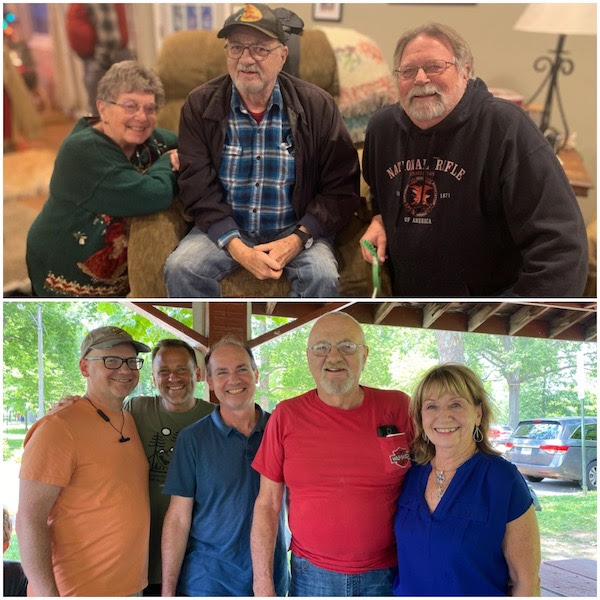Hi Friend,
My dad died this week.
He called two weeks ago and said his health was declining. From then till Monday he was in the hospital twice. Last Friday when he was back in, I talked to him about liking their accommodations, suggesting it’s why he returned. He was coherent and sounded strong. My younger brother and I decided to return to our hometown this past Monday to spend a few days with him. When I landed on Monday I was informed he took a turn for the worse during the night and died at 9am that morning. I got to town around noon.
So instead of spending a week chatting and hanging out with my dad and brothers, it’s been a week with my brothers, step mom and other family talking through the funeral. My step mom asked me to officiate the funeral.

My dad and I had a good relationship. From the outside it didn’t appear that way. We talked two or three times a year. We’d see each other if one of us was in the same vicinity around Christmas. In the last five years I’ve seen him three times for a total of about six hours.
I loved him. He loved me. He made a decision after he remarried to focus primarily on my step mom. It was 1979. From then on he participated in obligatory kid experiences – like holidays and birthdays, but otherwise he stayed primarily in his world. I understand as I write this, it may sound like there is room for dad-issues. There is not. He didn’t abandon me or my brothers. He took a new perspective once he remarried and leaned into it.
In my twenties I came to appreciate who he was and how he was.
I accepted him on his terms.
When my kids were born, their mom was offended at the little interest he showed for them. I would say “That’s just how he is.” He was consistent and true to his values. He told my younger brother last weekend while he was in the hospital that he had no regrets. We laughed and said “Hmmmm, maybe we could offer you a few suggestions.” It’s something we can joke about because, he chose an approach to life that didn’t carry a low-grade guilt with it.
It’s not how I’ve chosen to be in my kids life. But I have a different set of circumstances than he did.
Last week, I wrote you briefly about accepting yourself. This week, I’m suggesting we accept others where they’re at. In doing so it let’s you have your own boundaries with them. It also saves you emotional disruption. Over the years when people came to understand the dynamic of our relationship, they’d inquire with concern. My response was consistent: I love him. I know how he is. I have the relationship with him that he wants to have.
Accepting others fully, preserves your energy.
How many times do you hear someone, or yourself, say “I just wish they would ________” or “Why can’t they be like ______ (me)” or “How can she be like that?”. In all those questions we exert way too much mental and emotional resources.
Instigating Ideas…
1. Who do you need to accept?
2. Once you do, what kind of boundary do you need to establish?
3. How will those you love describe you at your funeral?
Why is it hard to accept people for who they are? Our surface answer is because we think their life would be better if they changed or conformed into our image of them. The deeper reality is because if we did accept them as-is, then we have to choose who we are going to be in that relationship. It’s much easier to blame themfor not being something, then to hold ourselves responsible for living in our own boundaries and integrity.
Accepting someone else’s deficiency requires us to acknowledge our own.
I loved being around my dad. He was funny, loud and always had a story. I suspect a bit of my personalitymay come directly from him. I’m sure as I ponder him, I’ll discover other elements of him embedded in me. I imagine that’s the hope and fear in us all; That we are more like the people who we think need to change.
I hope this week you accept yourself, accept others and really pay attention to the boundaries in your life. Our commitment to our own values, our own identity, our own reality is more essential than any other human acting differently.